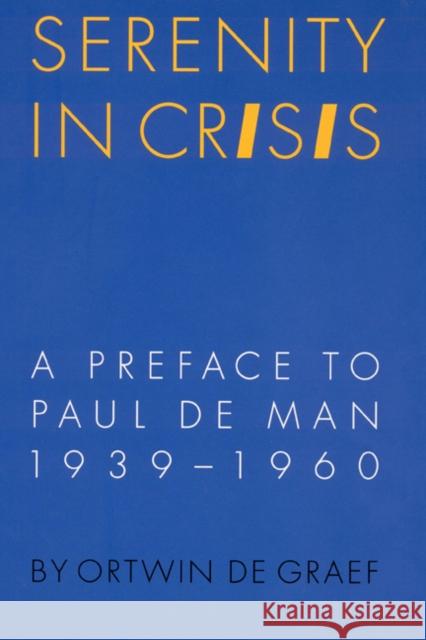Serenity in Crisis: A Preface to Paul de Man, 1939-1960 » książka
Serenity in Crisis: A Preface to Paul de Man, 1939-1960
ISBN-13: 9780803216945 / Angielski / Twarda / 1993 / 242 str.
A polymath well versed in European literature and philosophy, one of the founders of deconstruction, and a widely respected teacher, Paul de Man brought unprecedented attention and acclaim to the so-called Yale Critics. His fame was at a zenith when he died suddenly in 1983. A few years later, Ortwin de Graef found the de Man had written for the collaborationist press during the Nazi occupation, a discovery that ignited an international reassessment of de Man's work. Serenity in Crisis is the first sustained account of the complex, intertextual tradition in which de Man wrote and of the persistent concerns expressed in his early work. It reconstructs the truth-models with which de Man justified his political choice before and during the occupation and traces them back to an ambitious intention to integrate the competing truths of the natural sciences, the social sciences, and literature. The significance of de Man's ideational framework and the decisions that followed from it have extended well beyond the disasters of World War II. De Graef clearly illuminates and critiques the abstruse paths of logic in de Man's early writings as well as in the reformulations of de Man's thought expressed in his writings of the 1950s.











